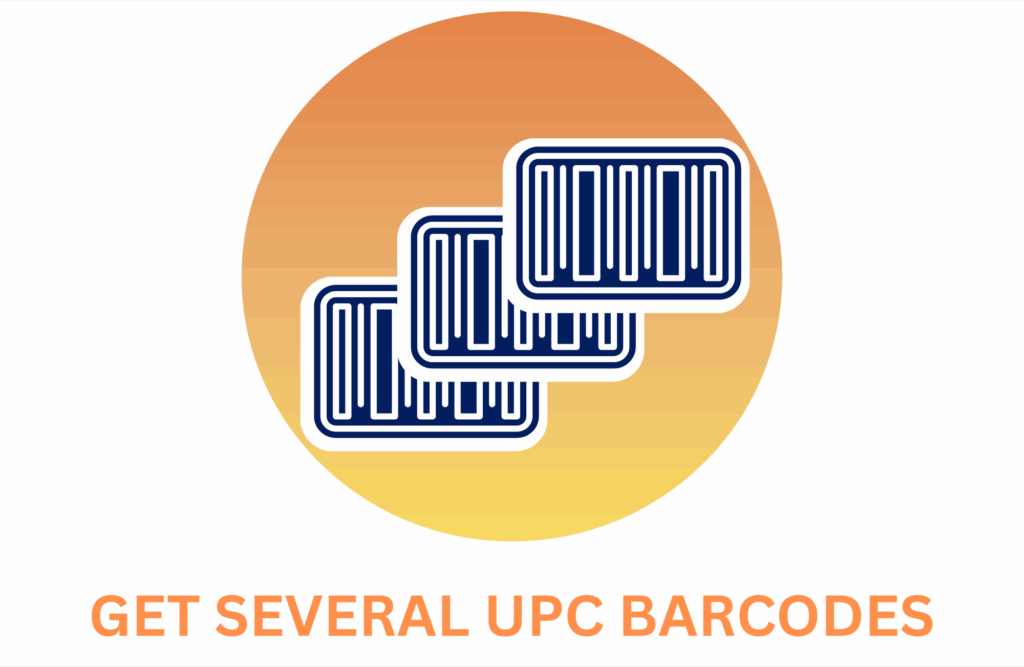Barcodes for Selling on Amazon
Amazon can be a great place to sell your products, but you need to handle the technical stuff correctly, especially when it comes to identification. You’ll hear about GTINs, UPCs, and Company Prefixes a lot as an Amazon seller. These aren’t just random acronyms – they’re actually how products get identified and tracked in online selling.
For seamless Amazon compliance, you need a brand-licensed UPC Company Prefix and Global Trade Item Numbers (GTINs), sourced with expert support from Barcode US ). GS1 sets the global standards and provides the numbers, but Barcode US delivers both the GTINs and the actual barcodes you need, along with expert personalized assistance.
AMAZON GTIN REQUIREMENTS
Amazon explicitly states that suppliers should ONLY obtain UPC barcodes with brand-associated Company Prefixes/GTINs. Companies who circumvent the process and obtain cheap 3rd party barcodes jeopardize their company’s chances for success.
What Are GTINs and Why Are They Essential for Amazon?
A GTIN is a unique 12-14 digit identifier that Amazon requires for product identification and inventory management. Without valid GTINs, listings may be rejected or suppressed, disrupting sales.
Amazon verifies GTINs against GTIN.cloud and the GS1 database to confirm brand authenticity. Barcodes from discount resellers often cause compliance issues and potential account risks since they are not correctly licensed to a brand/company.
Brand Ownership
A correctly brand licensed UPC Company Prefix from guarantees your barcodes are uniquely yours, preventing overlaps with other sellers
Amazon Compliance
Amazon validates GTINs against GS1 data. Barcode US ensures your numbers pass validation testing and avoid de-listings
Scalability
With a legitimately licensed UPC Company Prefix you can generate GTINs and barcodes for all your products, supporting your Amazon growth.
Valid UPCs – Amazon’s Definition
Beginning in 2016, Amazon started emphasizing the importance of using only GS1-licensed Company Prefixes. By July 2019, they escalated their approach with a formal notice on the Seller Central platform that outlined stricter compliance requirements.

Despite multiple warnings and notices, numerous successful Amazon sellers experience product listing deactivations due to improper use of Company Prefixes not correctly licensed to their brands. This ongoing compliance issue was recently highlighted in a Seller Central forum post.

What is the difference between SKUs, GTINs, and UPCs?
SKU (Stock Keeping Unit)
An SKU is an internal product code created by a company for easy inventory management. Each business generates unique SKUs, even for identical products sold by others.
GTIN (Global Trade Item Number)
A GTIN is a globally recognized product identifier used in supply chains.
- Required for product variations (e.g., size, color)
- Encoded within UPC/EAN barcodes (products)
- Licensing by GS1 Global insures uniqueness
UPC (Universal Product Code)
A UPC is the physical barcode that encodes the GTIN. It is machine-readable and used for inventory and sales tracking.
How are GTINs used on Amazon?
GTINs are essential for product identification on Amazon, helping products appear in more search results, improving visibility, sales, and customer loyalty. Proper GTIN usage ensures consistency between a product’s physical and digital presence, which fosters long-term collaboration with the marketplace.
Amazon requires GTINs in over 25 product categories, with specific guidelines in Seller Central for exemptions, bundles, and multi-packs. Each sellable unit needs its own GTIN, whether it’s a single item, a bundle (e.g., hair accessories), or a multi-pack (e.g., four boxes of crackers).
Understanding Amazon’s rules is crucial, as certain items cannot be bundled or sold in multi-packs, and detailed listing information is required for such groupings.
Should I choose a single GS1 US GTIN or a GS1 company prefix?
The decision is based on your business needs.
Single GS1 US GTIN
A single GTIN is ideal for small businesses with few products. The GTIN licensing portion only costs $30 with no renewal fees and includes a GS1 US certificate to verify ownership, making it perfect for startups.
GS1 Company Prefix
A GS1 Company Prefix is better for businesses planning to expand. It allows you to manage multiple GTINs, streamline inventory, and meet retailer requirements like Serialized Shipping Container Codes (SSCCs) and Global Location Numbers (GLNs). You can license a prefix for 10 to 100,000 GTINs, scaling as needed.
What should sellers do if their listings are hijacked on Amazon?
When someone hijacks your Amazon listings, you need to contact Amazon right away. Amazon will ask you to prove you own the product, which usually means showing them your GS1 Company Prefix or a certificate that proves you own the GTIN. They’ll cross-check this information with the GS1 database to make sure everything matches up.
Listing hijacking happens in a couple of different ways. Sometimes fraudulent sellers will take over a legitimate product listing and collect money from customers without actually shipping anything. Other times, sellers will just make up random GTIN numbers to get around Amazon’s verification system. Either way, having your official GTIN certificate ready makes it much easier for Amazon to confirm you’re the real brand owner and shut down the fake listings.
What does the Amazon error “Details do not match” mean?
“Details do not match” error typically occurs when the brand or registered seller information on a product listing doesn’t match the details tied to the GTIN. For instance, if a GTIN licensed to “Ben’s Boots” is used to list “Nike shoes,” Amazon will flag the error.
In such cases, the seller must provide proof of connection between the brand and the registered seller details. Amazon may request permission documentation, such as a letter of authorization or an invoice showing the purchased stock, to confirm legitimacy.
This process helps prevent counterfeit sales and listing hijacking.
What is the difference between GTIN.cloud and Data Hub?
Export Capabilities
GTIN.cloud allows unlimited data export to Amazon, Google Merchant Center, and other platforms at no additional cost, while GS1 Data Hub charges $4,500 for export functionality GS1 Data Hub Overview & Limitations – US Barcode Authority GS1 UPC.
Barcode Quality
GTIN.cloud generates printer-ready .EPS barcode files with proper bar width adjustment compensation using GS1-certified software, while GS1 Data Hub only provides low-resolution files for position-only use that are not compensated for print gain.
Data Validation
All GTIN.cloud data is personally validated by GS1 barcode consultants before publication, ensuring accuracy. GS1 Data Hub lacks this validation process.
User Access
GS1 Data Hub includes only one user account (additional users cost $1,000+), while GTIN.cloud offers better multi-user access options.
Platform Integration
GTIN.cloud provides customized export formats specifically designed for major platforms like Amazon and Google, with platform-specific data requirements.
Advanced Features
GTIN.cloud now includes dynamic certificate inclusion for authentication and can create GS1 Digital Link QR codes with proper formatting.
GTIN.cloud essentially provides enterprise-level functionality with professional validation and support, while GS1 Data Hub serves as a basic repository with significant limitations and additional costs for advanced features.








Comments are closed.